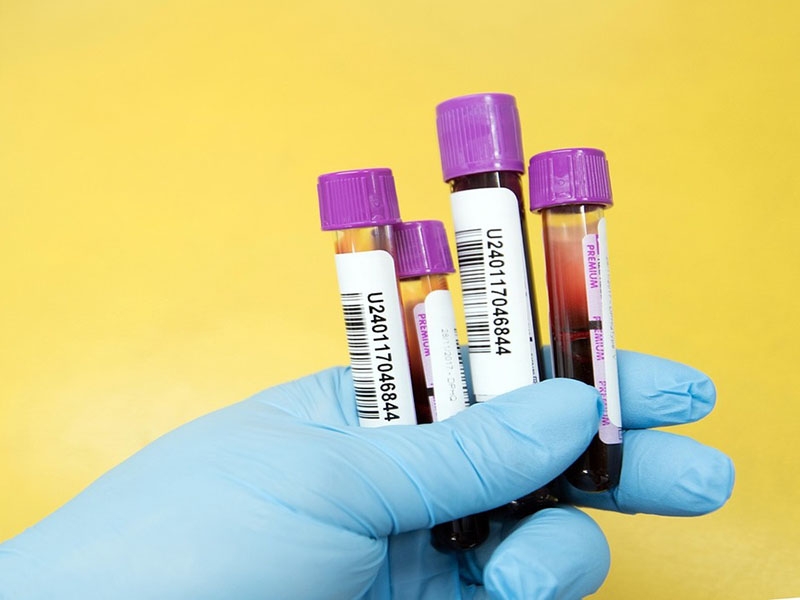
Blood Test
Watch our video about Blood Test
A blood test is a medical procedure used to analyze a sample of blood to assess overall health, diagnose diseases, and monitor various bodily functions. Blood tests are essential tools in modern medicine, providing insights into the functioning of organs, immune system activity, and potential health risks.
This procedure involves drawing a small amount of blood from a vein, usually in the arm, which is then analyzed in a laboratory. Results from a blood test can help doctors detect infections, measure glucose levels, check cholesterol levels, and monitor organ function.
What is a Blood Test Used For?
A blood test serves multiple purposes, including:
- Disease diagnosis: Identifies infections, anemia, diabetes, and other conditions.
- Health monitoring: Helps track ongoing medical conditions and evaluate treatment effectiveness.
- Routine check-ups: Used for general health assessments and preventive care.
- Detecting nutritional deficiencies: Determines levels of vitamins and minerals in the body.
- Pre-surgical evaluations: Ensures patients are fit for surgery.
- Hormonal analysis: Measures hormone levels affecting metabolism, growth, and reproductive health.
How Does a Blood Test Work?
The blood test process is quick and straightforward. A healthcare professional will:
- Sanitize the skin where the blood will be drawn, usually in the arm.
- Insert a needle into a vein to collect a small blood sample.
- Store the sample in a sterile tube and send it to the laboratory for analysis.
- Analyze the sample using specialized medical equipment to measure different parameters.
- Provide results that the doctor interprets to diagnose conditions or assess health.
Depending on the type of blood test, fasting might be required before the procedure to ensure accurate results.
Types of Blood Tests
There are multiple types of blood tests, each serving different diagnostic and monitoring purposes.
1. Complete Blood Count (CBC)
This test evaluates red blood cells, white blood cells, hemoglobin, and platelets to detect anemia, infections, and other conditions.
2. Blood Glucose Test
Used to diagnose and monitor diabetes by measuring blood sugar levels.
3. Lipid Profile
Assesses cholesterol levels, including LDL (bad cholesterol) and HDL (good cholesterol), to evaluate cardiovascular health.
4. Liver Function Test
Measures enzymes and proteins to assess liver health and detect liver diseases.
5. Kidney Function Test
Checks creatinine and blood urea nitrogen (BUN) levels to evaluate kidney function.
6. Thyroid Function Test
Analyzes thyroid hormones (TSH, T3, and T4) to diagnose thyroid disorders.
7. Blood Clotting Tests (Coagulation Panel)
Determines how well the blood clots, which is important for detecting clotting disorders.
Diseases That Can Be Detected by a Blood Test
Blood tests can help diagnose several health conditions, including:
- Diabetes – Measures blood sugar levels to diagnose diabetes.
- Anemia – Evaluates hemoglobin and red blood cell levels.
- Liver disease – Identifies liver function abnormalities.
- Kidney disease – Assesses kidney function through creatinine and BUN tests.
- Thyroid disorders – Detects imbalances in thyroid hormones.
- Infections – Identifies bacteria, viruses, or immune response markers.
- Cardiovascular disease – Analyzes cholesterol and triglyceride levels.
When is a Blood Test Indicated?
A blood test is recommended in various situations, such as:
- Routine health check-ups – Part of annual medical exams.
- Unexplained symptoms – Fatigue, weight loss, or dizziness.
- Monitoring chronic conditions – Diabetes, hypertension, or kidney disease.
- Preoperative screening – Ensures fitness for surgery.
- Assessing infections – Identifies bacterial and viral infections.
- Hormonal imbalances – Diagnoses thyroid or reproductive hormone disorders.
- Nutritional deficiencies – Detects iron, vitamin B12, or folic acid deficiencies.
Pre and Post Blood Test Care
Before the Blood Test:
- Follow fasting instructions (if required).
- Avoid alcohol and caffeine before testing.
- Stay hydrated to make blood drawing easier.
- Inform your doctor about medications you are taking.
After the Blood Test:
- Apply light pressure to the puncture site to prevent bruising.
- Stay hydrated to replenish lost fluids.
- Eat a balanced meal to restore energy.
- Avoid heavy lifting for a few hours after the test.
Contraindications for a Blood Test
Although blood tests are generally safe, there are some considerations:
- Patients with severe bleeding disorders may require special precautions.
- People with fainting tendencies should inform the healthcare provider.
- Allergic reactions to antiseptics or needles are rare but possible.
Alternatives for Those Who Cannot Take a Blood Test
For individuals who cannot undergo traditional blood tests, alternatives may include:
- Saliva tests for some hormone and disease screenings.
- Urine tests for kidney function and glucose analysis.
- Non-invasive imaging for certain organ function evaluations.
- Genetic testing for inherited conditions without blood samples.
Schedule Your Blood Test at Clinic Consultation
At Clinic Consultation, we offer comprehensive and reliable blood testing services. Our experienced healthcare professionals ensure a safe and comfortable experience for every patient. Whether for routine check-ups or specific health concerns, we are here to provide accurate diagnostic results.
Book your blood test in %CIDADE% today and take charge of your health with Clinic Consultation!
Click here to schedule an appointment online